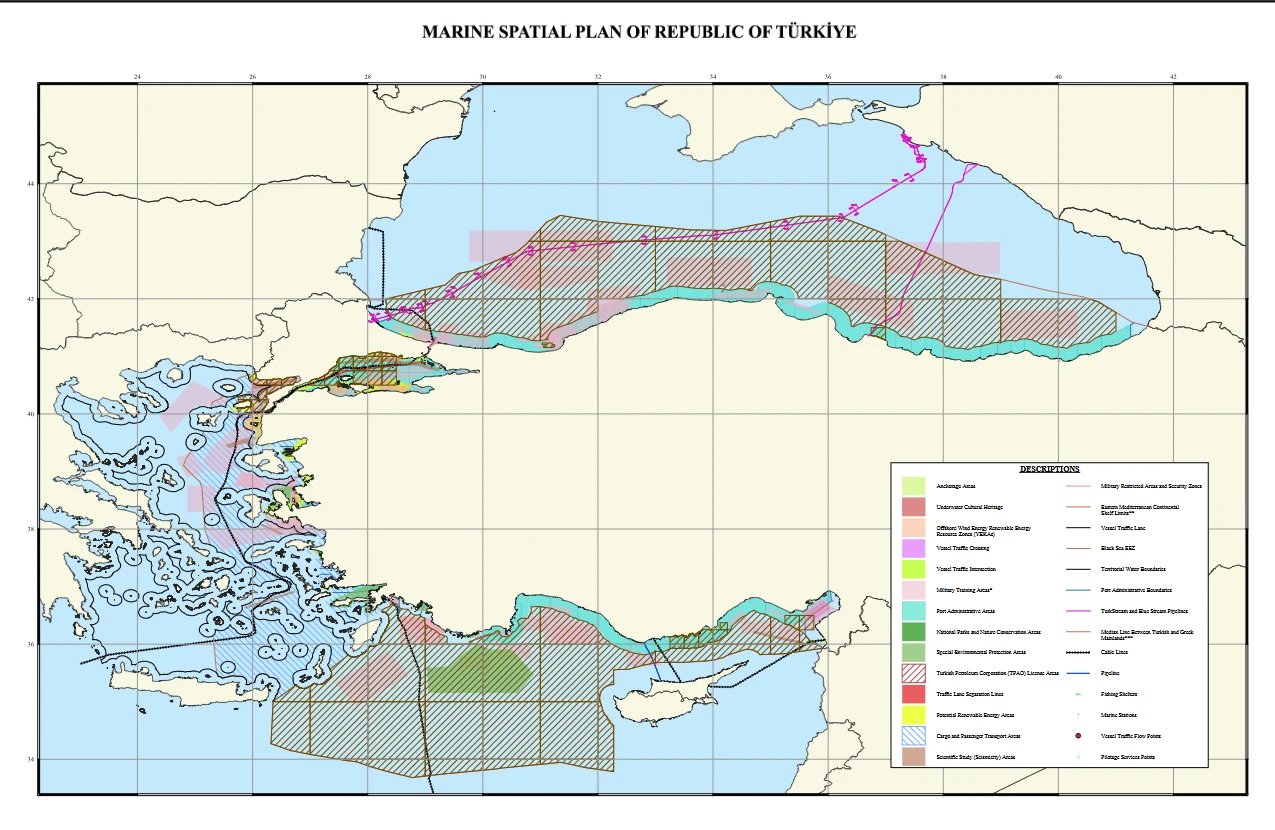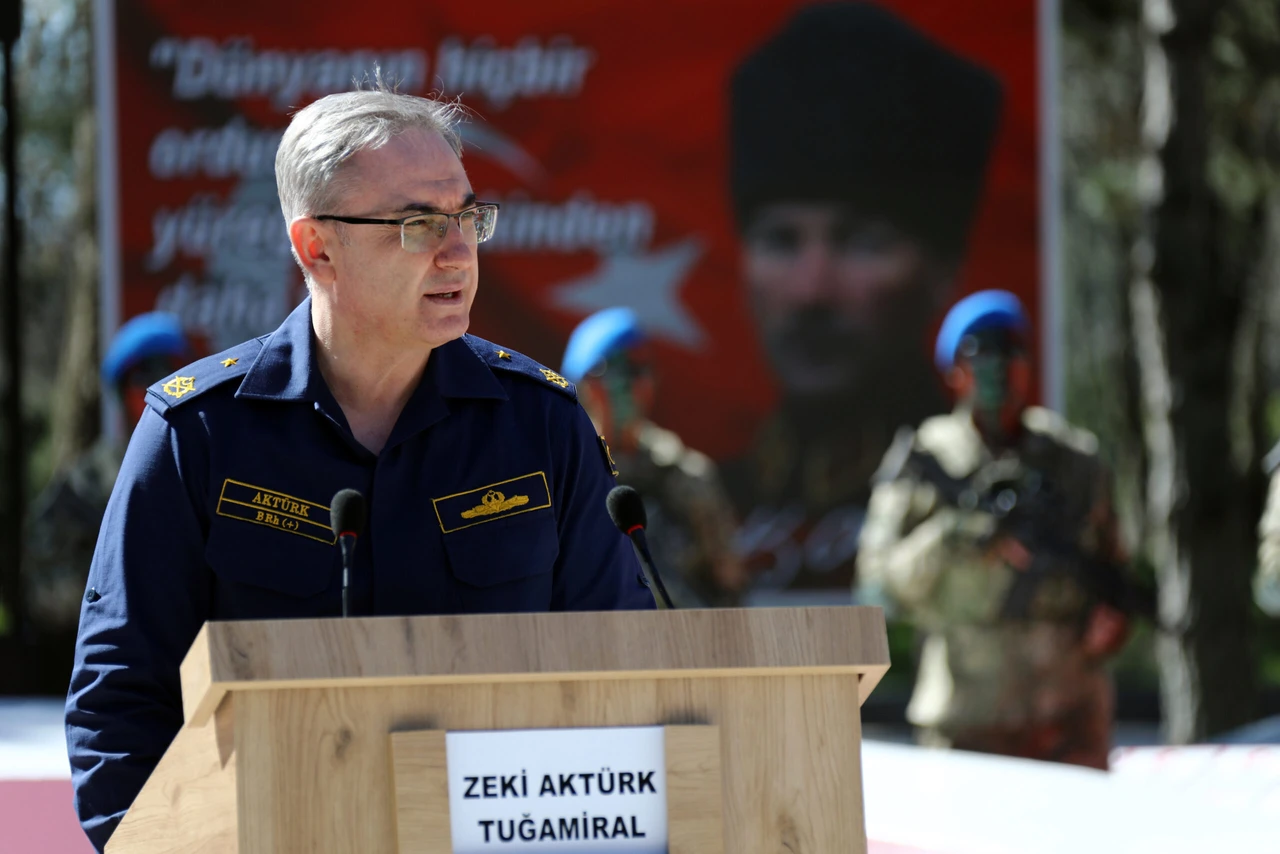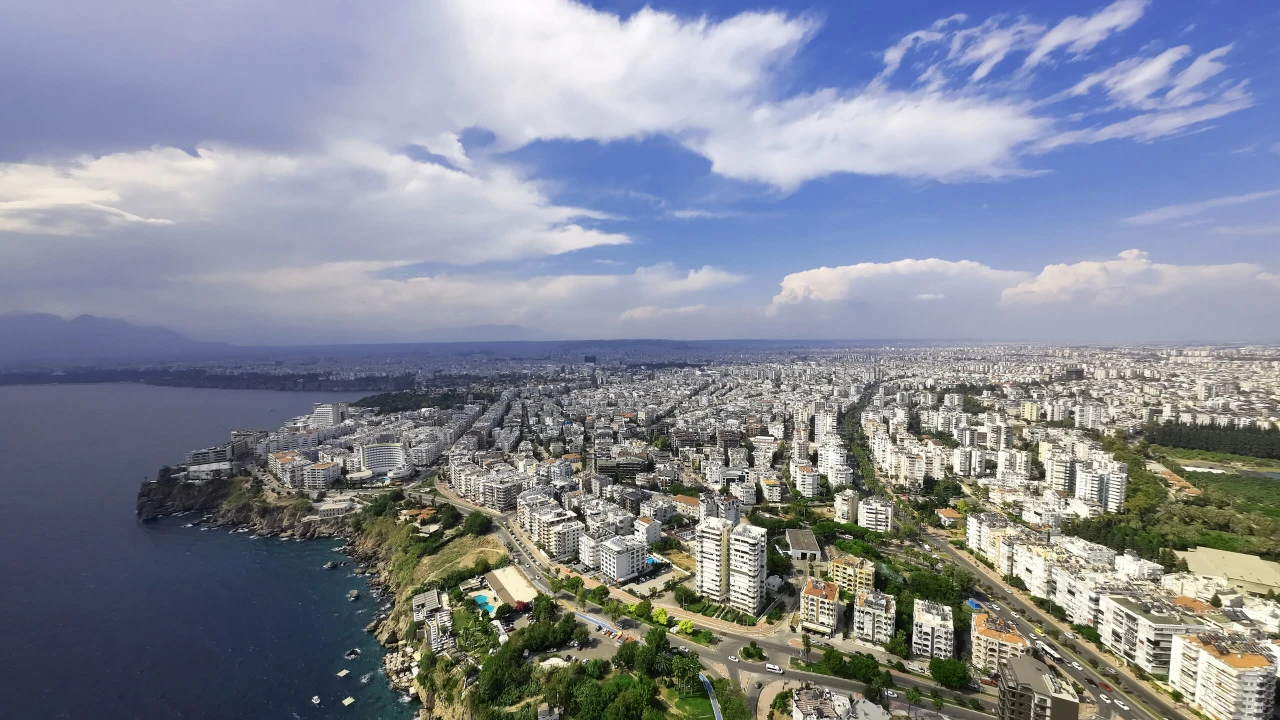Greece finds new ally in Türkiye for return of Parthenon Sculptures
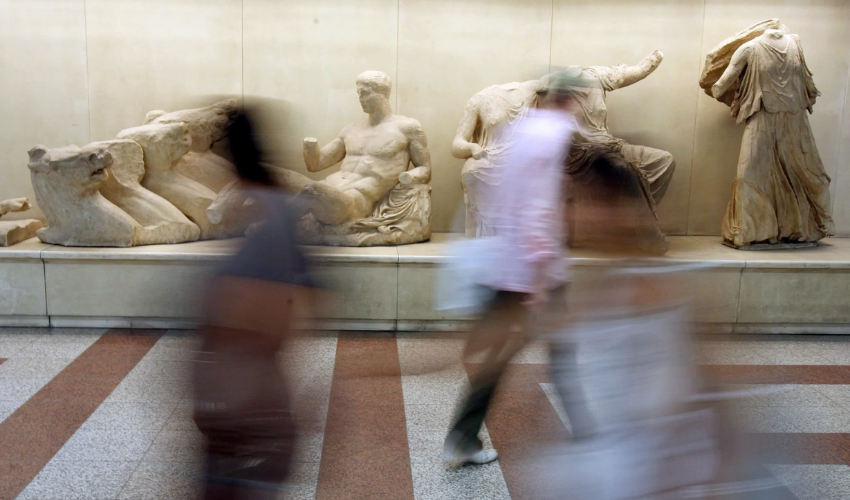 Passengers walk by copies of some of the Parthenon Sculptures displayed in the British Museum, at the Acropolis Metro station, Athens, Greece, June 11, 2009. (AFP Photo)
Passengers walk by copies of some of the Parthenon Sculptures displayed in the British Museum, at the Acropolis Metro station, Athens, Greece, June 11, 2009. (AFP Photo)
The longstanding dispute between Britain and Greece over the Parthenon Sculptures has taken a significant turn following Türkiye’s unexpected support for Greece.
At a UNESCO conference on May 29, Turkish officials declared that there is no Ottoman document, or “firman,” legitimizing Lord Elgin’s removal of the Parthenon Sculptures in the early 19th century.
This revelation strengthens Greece’s position in its decadeslong campaign to reunite the sculptures with their homeland.
Türkiye’s supports return of Parthenon Sculptures to Greece
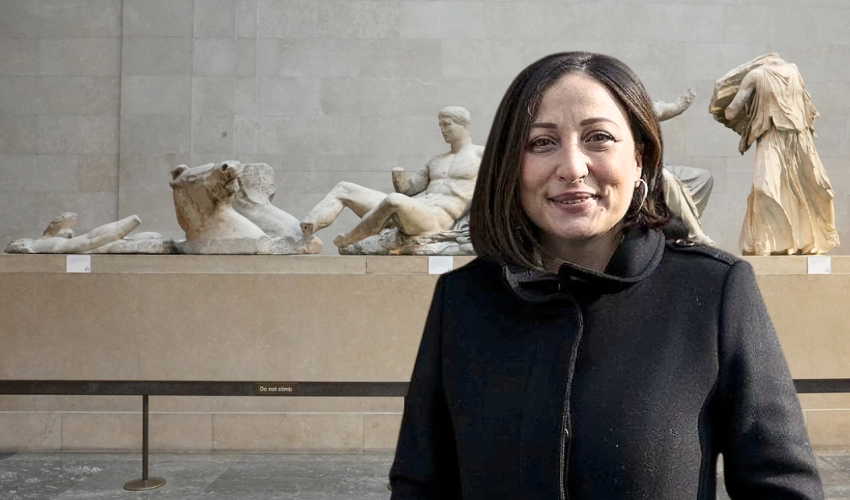
Türkiye’s representative at UNESCO, Zeynep Boz, also head of the Turkish Culture and Tourism Ministry’s anti-smuggling committee, stated, “Historians have for years searched the Ottoman archives and have not been able to find a ‘firman’ proving that the sale was legal.”
Boz emphasized that no legitimate document supports Britain’s claim. She remarked, “The only known existing document is an Italian translation with no signature, no stamp, no tughra (official seal of the sultan). Nothing to make it official.”
She explained her motivation for speaking out: “To have remained silent would have amounted to acknowledging the British claim. I had to say: ‘We are not aware of such a document.'”
She emphasized the importance of correcting historical inaccuracies and supporting cultural heritage. “We eagerly look forward to celebrating the return of the Sculptures to Greece,” Boz stated, reinforcing Türkiye’s commitment to this cause.
Greece’s commitment to take back Parthenon Sculptures
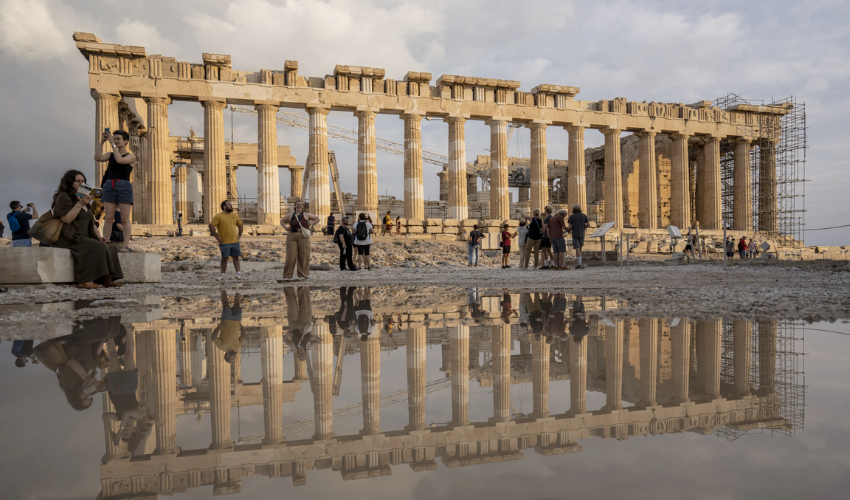
Greece’s Culture Minister Lina Mendoni reiterated that no Ottoman firman authorized Elgin’s actions. She asserted Greece’s commitment to reuniting the Parthenon Sculptures, calling it a national objective.
“One of the standing issues on the daily agenda in the last 40 years concerns the Parthenon Sculptures. Greece is always open to dialogue. It has tried and will continue to try so that the great national goal – which is to satisfy the national demand for the reunification of the Parthenon Sculptures in Athens, in the Acropolis Museum – becomes a reality,” Mendoni said.
British Museum’s response to returning Parthenon Sculptures

In response to Türkiye’s intervention, the British Museum announced its pursuit of “realistic solutions” for the Parthenon Sculptures. A museum spokesperson acknowledged Greece’s strong desire for the sculptures’ return to Athens, emphasizing the deep emotions tied to this issue.
“The British Museum acknowledges Greece’s strong desire for the return of the Parthenon Sculptures to Athens. We understand and respect the deep emotions involved,” the spokesperson told Greek television network SKAI TV.
The museum expressed a willingness to develop a “Parthenon partnership” with Greece to enhance global understanding and appreciation of the sculptures.
While the British Museum remains bound by law from permanently returning the sculptures, it has shown interest in finding collaborative solutions. “We are keen to develop a new relationship with Greece – a Parthenon partnership – and to explore innovative ways of working together,” the spokesperson added.
Greek media’s perception of Türkiye’s support and consequences
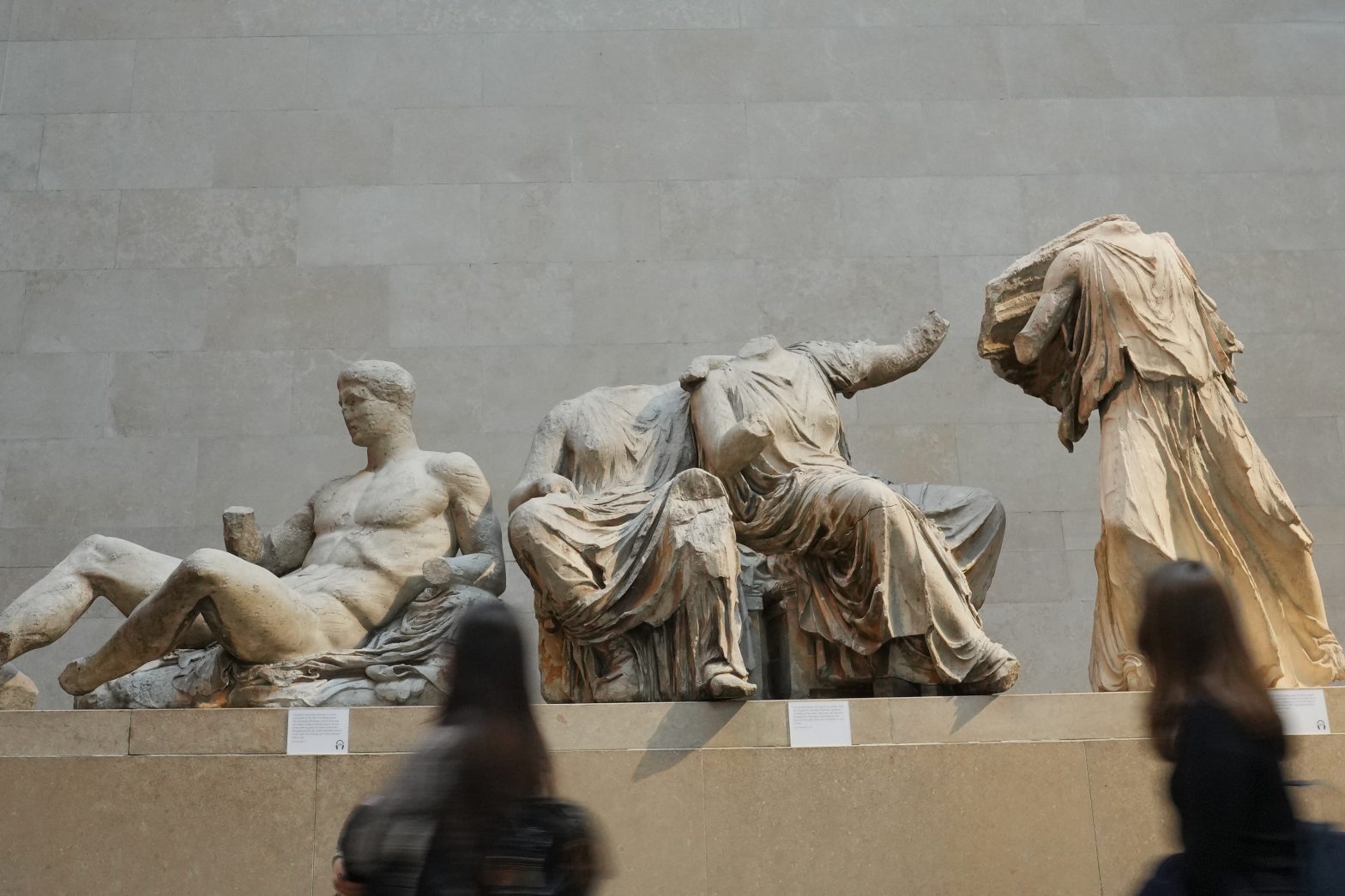
Greek media outlets have welcomed Türkiye’s support, viewing it as a significant boost to their campaign. Greek media sees this collaboration as a step toward rectifying historical injustices and fostering stronger cultural ties between the two nations.
“The representative of Türkiye confirmed what the Greek side has argued for years – that there was no firman,” Mendoni noted. This support aligns with Greece’s argument that the sculptures were taken illegally and should be returned.
Türkiye’s support in this matter not only strengthens Greece’s position but also shows a shared cultural objective. Boz stressed the significance of international cooperation in preserving cultural heritage. “We support the return of cultural artifacts to their rightful homes. This case sets a precedent for other cultural heritage disputes,” she mentioned.
Will Greece manage to take back Parthenon Sculptures?
Despite the renewed support from Türkiye, past negotiations have faced setbacks. Last November, a planned meeting between British Prime Minister Rishi Sunak and Greek Prime Minister Kyriakos Mitsotakis was abruptly canceled, derailing potential progress.
Nevertheless, Greece remains committed to its goal. Mendoni stated, “Greece remains open to dialogue and will continue its efforts for the return of the sculptures, which have a place set aside for them in the Acropolis Museum in Athens.”
The recent comments from Turkish officials have reinvigorated Greece’s efforts. Boz’s assertion that no official Ottoman documentation exists to support Britain’s claim adds weight to Greece’s argument for the sculptures’ return.
